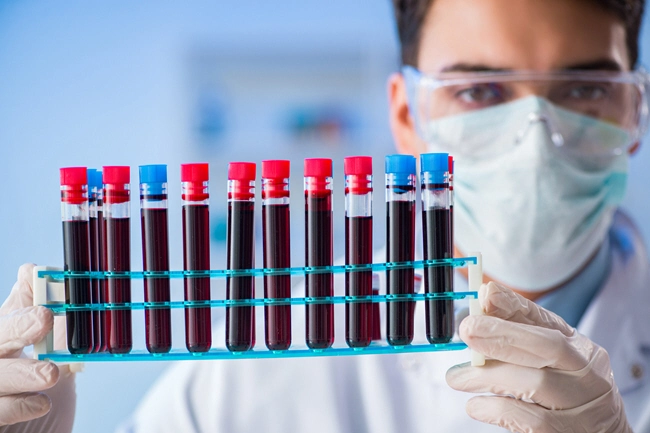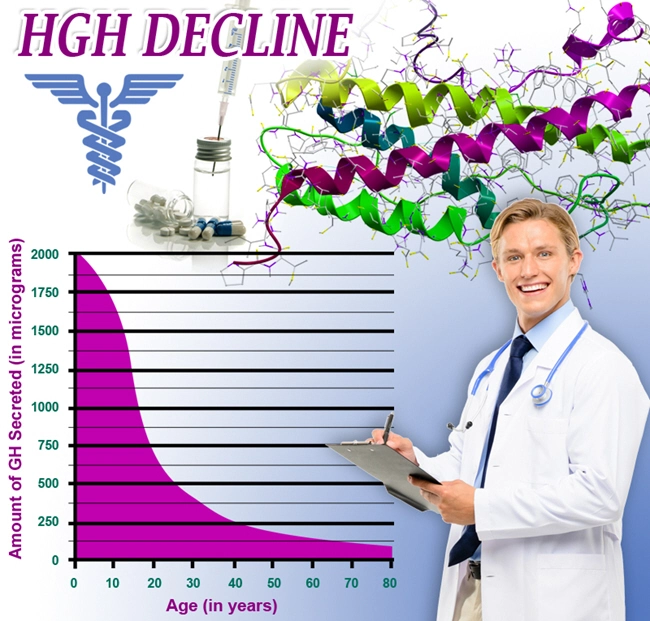
Video Link: https://vimeo.com/285160233
Video Download: Click Here To Download Video
Video Stream: Click Here To Stream Video
Video Link: https://vimeo.com/285158227
Video Download: Click Here To Download Video
Video Stream: Click Here To Stream Video
What You Need to Know About Statin Drugs
The Complete Story...How They Work...The Good and Bad
 Once you have come to our clinic to begin Human Growth Hormone Replacement Therapy, we will immediately start a holistic approach to attacking the ravages of aging and maintaining your good health.
Once you have come to our clinic to begin Human Growth Hormone Replacement Therapy, we will immediately start a holistic approach to attacking the ravages of aging and maintaining your good health.
Our program is not limited to growth hormone (HGH) replacement therapy.
Part of your treatment includes the latest research and methods of treating the vast array of potential health problems that you may be suffering from, as well as preventing future problems.
This includes pharmaceutical drugs, such as statins, the most commonly prescribed cholesterol-fighting medicines.
The Problem
While there are many medical issues that are a source of disagreement among scientists, physicians, and researchers, there is one topic that virtually everyone agrees: high levels of low-density lipoproteins (LDL) cholesterol is a severe and potentially deadly risk to both your health and your life.
Elevated LDL cholesterol levels increase your risk for cardiovascular disease. This is due to LDL cholesterol from your blood barging into your arteries at ever-increasing amounts.
When this happens, LDL is oxidized, which sets off a chain of events that eventually results in the formation and accumulation of atherosclerotic plaque, leading to a condition called Atherosclerosis.
Atherosclerosis is a hardening of the arteries due to a build-up of plaque on the inner walls, and often leads to heart attacks and strokes.
The causes of this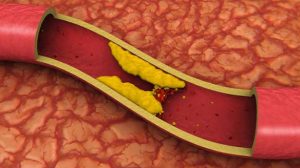 condition are the usual suspects in many other health problems: poor nutritional habits (too much junk food, processed food, and sugar); genetics; sluggish thyroid; obesity and large waist circumference; diabetes; smoking and lack of exercise (i.e., being a couch potato).
condition are the usual suspects in many other health problems: poor nutritional habits (too much junk food, processed food, and sugar); genetics; sluggish thyroid; obesity and large waist circumference; diabetes; smoking and lack of exercise (i.e., being a couch potato).
Statins have become a popular choice to treat cholesterol problems, and for many, they are efficient and often well-tolerated. Statins are one of the most frequently prescribed classes of drugs, and more than twenty-five per cent of adults age 45 and older take statins.
How Do Statins Work?
Statins have been used primarily to treat high cholesterol. Statin drugs, like atorvastatin, pravastatin, and simvastatin, work by inhibiting a liver enzyme that is involved in the production of cholesterol.
They are most effective at lowering levels of LDL cholesterol and may also contribute to increasing levels of High-Density Lipoprotein HDL (“the good cholesterol”).
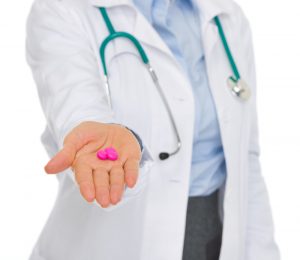 In the most recent analysis of statins for primary prevention in patients who have not had a previous cardiovascular event, a 14 per cent reduction in all-cause mortality and a 25% reduction in fatal plus non-fatal cardiovascular events was reported.
In the most recent analysis of statins for primary prevention in patients who have not had a previous cardiovascular event, a 14 per cent reduction in all-cause mortality and a 25% reduction in fatal plus non-fatal cardiovascular events was reported.
However, the validity of these numbers has been questioned; some researchers have claimed that studies conducted by scientists without conflicts of interest did not find any reduction in cardiovascular events, in contrast to studies paid for by pharmaceutical companies.
Like most medications, statins have both good and bad sides. In many cases, the benefits outweigh the risks. Here is some information about statins that will make you think beyond your cholesterol number.
The Good
Cholesterol is the single most significant risk factor for heart disease and a significant risk factor for stroke and disease of the arteries. Statins reduce harmful cholesterol by slowing its production in the liver.
You may think of cholesterol as just a number, but using statins has other benefits to your cardiovascular system. Research has shown that statins may reduce the incidence of heart attack, stroke, and death in people without heart disease.
In fact, statins have a primary role in cardiovascular disease prevention. They've proven to reduce heart attack and stroke by lowering harmful cholesterol which thickens arteries and increases the risk of clots.
A review of 90,000 statin users by the Medical Research Council in Oxford and the University of Sydney concluded that risk of fatal heart attack or stroke fell by about a third.
Benefits started immediately, increased the longer statins were taken, and cholesterol continued to fall. The study reported statins are especially valuable to people at high risk of heart attack or stroke and also protect patients whose cholesterol was considered normal.
 Additionally, statins have a few side effects that appear to be helpful, such as improving endothelial function (the balance between vasodilating and vasoconstricting substances produced by (or acting on) the endothelium, which controls platelet adhesion, coagulation, and immune function) and reducing inflammatory markers.
Additionally, statins have a few side effects that appear to be helpful, such as improving endothelial function (the balance between vasodilating and vasoconstricting substances produced by (or acting on) the endothelium, which controls platelet adhesion, coagulation, and immune function) and reducing inflammatory markers.
Other studies have reached the same conclusion: statins save lives. Cardiovascular disease is America's biggest killer, causing approximately 610,000 deaths a year.
It’s estimated that statin use has prevented thousands of heart attacks, strokes or deaths from cardiovascular disease.
These drugs primarily benefit those who have suffered a heart attack or stroke or have angina or peripheral arterial disease.
Statins have been tried and tested for 20 years. They’ve been in use for over a decade and most trials, involving tens of thousands of patients, continued for five years or more.
Researchers have investigated the potential health benefits of taking statins. There is evidence that statins may reduce the risk of:
- Heart attack and death in people with heart disease regardless of cholesterol levels
- Cardiovascular events and death in people who are at high danger of developing cardiovascular disease
- Heart attack, stroke, and death in individuals with elevated levels of C-reactive protein, a sign of inflammation in the body
- Cardiovascular events in women who have cardiovascular disease
- Surgery to improve blood flow to the heart and unstable angina in women
Statins may also help lower blood pressure.
The Bad
More massive doses of statin drugs are associated with higher likelihood of side effects, and additional risk factors such as other drugs, older age, diabetes and high triglycerides also increase the chances of adverse effects.
If your doctor prescribes statins, some common side effects that you may have include:
- Nausea or diarrhea
- Insomnia
- Fatigue
- A headache
- Pruritus (Itchy skin)
- Anxiety
- Constipation
Possible severe side effects include:
Memory loss and confusion. Memory loss is reported by some, but the evidence is inconclusive. Therefore, the debate continues over whether statins may have damaging effects on brain function.
Approximately 17 per cent of patients who take a statin experience some mental confusion. Although this is not an extremely high level, it still is enough to warrant trying to lower high cholesterol levels with better nutrition and lifestyle changes.
Elevated blood sugar levels and increased risk of diabetes. It is now accepted that there is an increased risk of type 2 diabetes in statin users. One  study reported a 9 per cent increase in risk; another said a 13 per cent growth in danger.
study reported a 9 per cent increase in risk; another said a 13 per cent growth in danger.
The reason for this is that statins appear to promote diabetes by interfering with insulin secretion by the beta cells of the pancreas and by lowering insulin sensitivity.
Liver damage. Taking statins can result in elevated liver enzymes, which is a sign of the liver working harder and may cause liver damage.
This side effect has been reported by some statin users. However, once again, the evidence is inconclusive, since many people experience no liver problems while using statins.
Muscle pain or weakness. Some individuals who take statins develop muscle damage. In extreme cases, the body may release the protein myoglobin, which can cause kidney damage.
The most common adverse effects of statins are myopathies (reduced muscle function), which may be due to impaired energy production in the mitochondria of the muscle cells.
These side effects include muscle pain (myalgia and myositis) and a severe break down of muscle called rhabdomyolysis. Rhabdomyolysis can also lead to kidney and liver dysfunction.
More severe muscle break down occurs rarely and is usually reversible upon stopping the drug. In a small number of cases, muscles can be severely damaged.
Muscle damage caused by one statin, cerivastatin (Baycol) was severe and widespread enough (several hundred deaths) for it to be withdrawn from the market in 2001.
Cancer. There have been numerous scientific studies about the use of statins and the risk of cancer, but the evidence is conflicting.
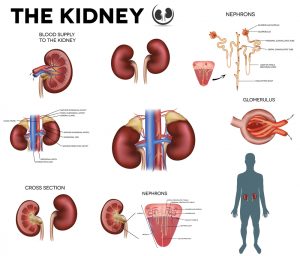 Kidney damage. A study examining Canadian healthcare records for 2 million patients who had been newly prescribed a statin found an increase in the incidence of hospitalization for acute kidney injury during the first six months of statin use.
Kidney damage. A study examining Canadian healthcare records for 2 million patients who had been newly prescribed a statin found an increase in the incidence of hospitalization for acute kidney injury during the first six months of statin use.
This was worse with high potency statins in particular. Again, this is due to the increased chance of the body releasing the protein myoglobin, which can damage the kidneys and, as mentioned earlier, also can cause muscle pain.
Due to the adverse effects of statins on skeletal muscle, there is evidence that statins may also blunt the beneficial conditioning effects of aerobic exercise.
The likelihood of muscular side effects depends on the dose of the statin, and these side effects are more prevalent in physically active patients.
A team of researchers from Japan and the U.S. has compiled and described possible molecular mechanisms by which statins could accelerate heart disease.
The authors make the argument that the abnormalities caused to the energy production machinery in skeletal muscle imply that heart muscle could be similarly damaged.
Cataracts. Previous studies that have looked at the link between statin use and cataracts have produced conflicting results.
Some say there is an increased risk; others say there is not, and some show inconsistent associations. In light of this, doctors are urged to carefully consider the risks versus the benefits of statin use, especially for prevention.
As with other side effects, further studies are needed.
Women and statins. All agree that both sexes with heart disease should consider statins. But discussion continues over whether women at moderate risk of heart attack and stroke should take statins.
Studies of men and women have shown a reduced risk with statins for both genders. However, the number of women participating was insufficient to produce definitive results. Until a large-scale trial assesses effectiveness in moderate-risk women, statins should be avoided in most lower-risk women.
But for those at moderate risk, the drug should not be ruled out.
In day-to-day living, these side effects can cause some users to have difficulty climbing stairs, suffer from constant fatigue and have sore muscles, especially after activity.
These side effects must be noted If they persist or worsen, the drug dosage must be adjusted, or the drug use may have to be stopped. However, this is not the case for most people taking statins.
The Bottom Line
If you have elevated cholesterol, changing your nutritional intake and getting off the couch should be your first course of action.
Medication is unnecessary for most people who make the appropriate lifestyle changes. A nutrient-loaded choice of foods such as cruciferous vegetables, nuts, beans and berries work synergistically to bring LDL cholesterol down and restore the arteries back to proper operation.
 Clean, powerful nutrition has been found to have the ability to reduce cholesterol by 33 per cent within two weeks.
Clean, powerful nutrition has been found to have the ability to reduce cholesterol by 33 per cent within two weeks.
Unlike taking a statin while continuing poor eating habits, a diet based on vegetables, legumes, nuts, seeds, fruits, organic grass-fed meats and adequate water intake for proper hydration delivers multiple benefits: dramatically lowering your risk of heart disease, annihilating atherosclerotic plaque while causing cholesterol levels, blood pressure and inflammation to plummet.
A healthy lifestyle of smart eating and the right fitness routine also gives your body the strength to ward off diabetes and cancer, and provides you with an “iron-clad” immune system.
Also, nutritional supplements are an essential part of the equation. Statins are potentially toxic to the mitochondria because they may deplete the body's levels of coenzyme Q10 (CoQ10), a critical component of mitochondrial energy production.
Cardiac muscle tissue is especially vulnerable to CoQ10 depletion because of its high energy demands. Our clinic will monitor your levels of this vital substance, and recommend supplementation as needed.
However, if, in spite of your positive lifestyle changes, your cholesterol levels stubbornly remain high, statin use may be warranted. In that case, the above information should allow you to make an informed decision.
Restoring Your HGH Levels is the Key
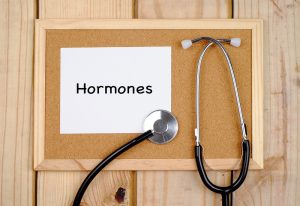 By deciding to slow down and potentially halt the aging process, you are aware that AGING ITSELF plays a massive role in all afflictions, including increased risk of heart attack, stroke and elevated cholesterol levels.
By deciding to slow down and potentially halt the aging process, you are aware that AGING ITSELF plays a massive role in all afflictions, including increased risk of heart attack, stroke and elevated cholesterol levels.
You can choose to remove the cause or treat the symptom. Treating the symptom with statin drugs does not reverse heart disease and carries the risk of adverse effects.
Removing the cause with a medically-supervised growth hormone replacement therapy, combined with health-promoting nutrition, physical fitness, and stress-reducing lifestyle changes will reduce not only cholesterol but also lower blood pressure, heart disease and deliver reliable protection against diabetes, dementia, and cancer.
We have all bases covered.
The whole program.
A synergistic blend of hormone restoration to your youthful levels...the right nutritional plan...a fitness routine personalized for you...the latest advice on health-promoting supplements...and medical supervision of any condition that may require prescription drugs...we leave nothing to chance.
 So give us the chance to deliver on our promise. Contact our clinic. Don't waste another day. Contact us NOW!
So give us the chance to deliver on our promise. Contact our clinic. Don't waste another day. Contact us NOW!
Contact Us Today For A Free Consultation
Dear Patient,
Once you have completing the above contact form, for security purposes and confirmation, please confirm your information by calling us.
Please call now: 1-800-380-5339.
Welcoming You To Our Clinic, Professor Tom Henderson.

- How to Get Started with HGH Injections [Last Updated On: December 2nd, 2020] [Originally Added On: August 24th, 2020]
- At Last! Introducing Humatrope HGH Replacement Therapy [Last Updated On: February 1st, 2025] [Originally Added On: August 29th, 2020]
- Omnitrope...a Powerful Addition to Your Anti-Aging Toolbox [Last Updated On: January 31st, 2025] [Originally Added On: September 2nd, 2020]
- Nutropin Makes Old Bodies Young Again! [Last Updated On: January 31st, 2025] [Originally Added On: September 3rd, 2020]
- Buy Serostim HGH Injections: Can Serostim injectable human growth hormone help one to increase lean muscle mass through body building? [Last Updated On: January 30th, 2025] [Originally Added On: September 8th, 2020]
- Like To Join The Anti-Aging Party? You Can…With Saizen [Last Updated On: January 28th, 2025] [Originally Added On: September 9th, 2020]
- Causes of Human Growth Hormone (Somatropin) Deficiency [Last Updated On: January 30th, 2025] [Originally Added On: September 17th, 2020]
- Ipamorelin: A new tool to boost your growth hormone levels [Last Updated On: October 10th, 2024] [Originally Added On: March 16th, 2021]
- What You Need to Know About Somatropin (Humatrope) [Last Updated On: January 29th, 2025] [Originally Added On: April 1st, 2021]
- Considering Growth Hormone Replacement Therapy for Injury Relief? [Last Updated On: January 29th, 2025] [Originally Added On: August 16th, 2021]
- HGH Purchased From Mexico Is Illegal - Don't Buy HGH Illegally [Last Updated On: March 1st, 2025] [Originally Added On: September 2nd, 2021]
- The Incredible Benefits of Growth Hormone [Last Updated On: January 28th, 2025] [Originally Added On: September 14th, 2021]
- Buy Human Growth Hormone Legally! [Last Updated On: January 26th, 2025] [Originally Added On: September 26th, 2021]
- Side Effects and Dangers of Growth Hormone [Last Updated On: March 4th, 2025] [Originally Added On: September 26th, 2021]
- Boost Growth Hormone [Last Updated On: January 19th, 2025] [Originally Added On: September 26th, 2021]
- Growth Hormone: Hollywood's Secret of Youth [Last Updated On: January 26th, 2025] [Originally Added On: September 26th, 2021]
- Glossary of terminology [Last Updated On: July 8th, 2024] [Originally Added On: September 26th, 2021]
- Growth Hormone Side Effects [Last Updated On: January 18th, 2025] [Originally Added On: October 6th, 2021]
- Buy Growth Hormone: Legally [Last Updated On: March 2nd, 2025] [Originally Added On: October 7th, 2021]
- How to Dispose of Needles Correctly [Last Updated On: January 23rd, 2025] [Originally Added On: October 7th, 2021]
- How To Avoid Growth Hormone Scams [Last Updated On: January 22nd, 2025] [Originally Added On: October 7th, 2021]
- How to Inject Growth Hormone [Last Updated On: January 23rd, 2025] [Originally Added On: October 7th, 2021]
- Growth Hormone Testimonials [Last Updated On: January 25th, 2025] [Originally Added On: October 7th, 2021]
- Doctors Comment on Growth Hormone [Last Updated On: January 24th, 2025] [Originally Added On: October 7th, 2021]
- Growth Hormone Therapy Protocol [Last Updated On: January 22nd, 2025] [Originally Added On: October 7th, 2021]
- All About Growth Hormone [Last Updated On: January 21st, 2025] [Originally Added On: October 7th, 2021]
- Guide to Growth Hormone Replacement Therapy: Somatropin [Last Updated On: January 25th, 2025] [Originally Added On: October 25th, 2021]
- Growth Hormone and The Thyroid Gland [Last Updated On: April 24th, 2025] [Originally Added On: November 19th, 2021]
- Weekly HGH Injections with Sogroya for Hypopituitarism [Last Updated On: June 20th, 2024] [Originally Added On: June 27th, 2022]
- From Incel to Chick Magnet in One Easy Step [Last Updated On: September 1st, 2024] [Originally Added On: July 8th, 2022]
- Slow Aging with Growth Hormone [Last Updated On: June 18th, 2024] [Originally Added On: July 17th, 2022]
- How to Self-Administer HGH [Last Updated On: June 25th, 2024] [Originally Added On: January 25th, 2023]
- Women in High Stress Situations: Can HGH Help? [Last Updated On: August 21st, 2024] [Originally Added On: March 8th, 2023]
- A Positive Testimonial to HGH Prescription for Growth Hormone Deficiency [Last Updated On: October 24th, 2024] [Originally Added On: September 28th, 2023]
- The Dangers and Illegality of Purchasing HGH from Mexico [Last Updated On: February 25th, 2025] [Originally Added On: February 25th, 2025]
- Legality of Purchasing Human Growth Hormone [Last Updated On: February 26th, 2025] [Originally Added On: February 26th, 2025]
- Implications and Risks of Human Growth Hormone Usage [Last Updated On: February 27th, 2025] [Originally Added On: February 27th, 2025]
